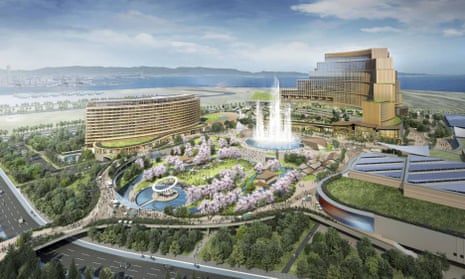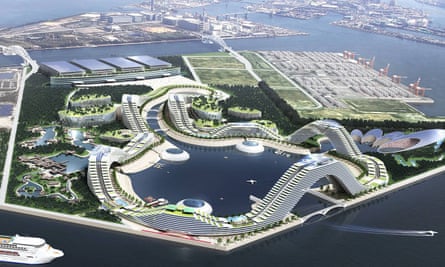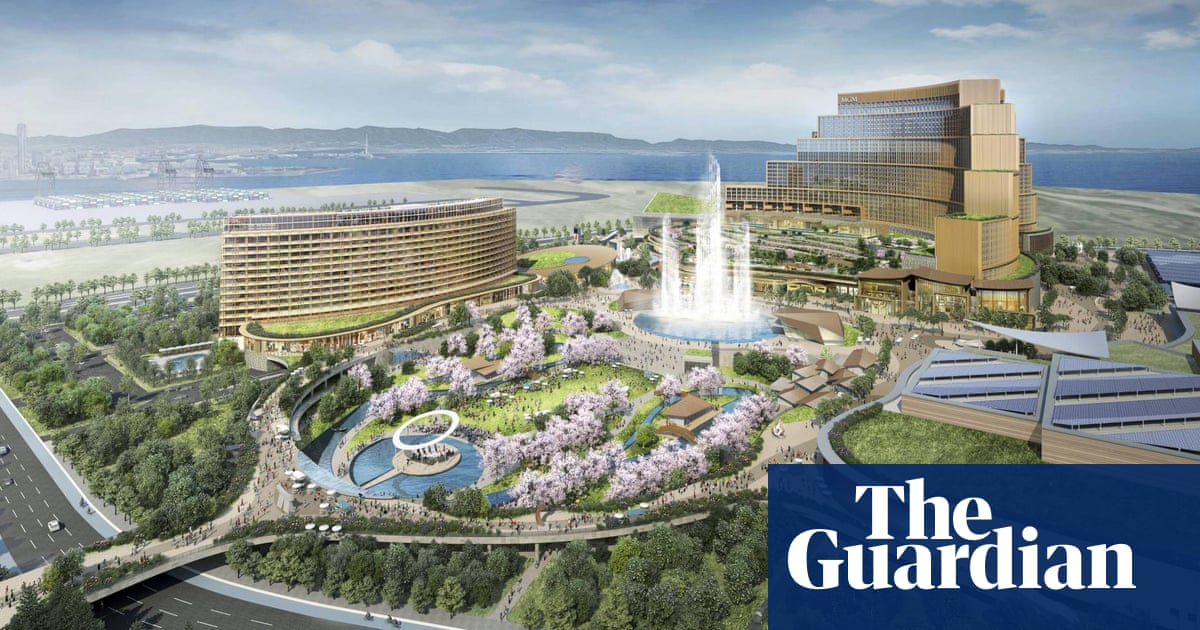
Japan approves building of first casino
First casino complex to be built in Osaka after ban was lifted despite fears about gambling addiction
Japan has approved a controversial plan to build the country’s first casino, after decades of debate fuelled by fears that an increase in tourist spending could be blighted by a rise in gambling addiction.
The casino complex, which will include restaurants, shops and entertainment facilities as part of an “integrated resort”, will be built in the western port city of Osaka, where senior politicians have pushed for its construction and rejected demands for a local referendum.
Authorities in Osaka hope the project will be completed in 2029 at an initial cost of ¥1.8tn ($13.5bn). The city’s bid was approved after “sufficient examination from various perspectives”, the transport minister, Teruo Saito, told reporters on Friday.
The prime minister, Fumio Kishida, said the complex would promote development in the wider Osaka region and “become a tourism base that will disseminate the charm of Japan to the world”.
The global casino industry and lawmakers from Kishida’s Liberal Democratic party spent years pushing for a change in the law to allow developers to build casinos in Japan, the world’s third-biggest economy.
Foreign casino operators lobbied Japanese authorities for access to a market that could generate huge profits, estimated by some analysts at $20bn a year if three casino complexes are built.
While supporters pointed to the additional spending that would come from domestic and foreign gamblers, critics warned that casinos would add to Japan’s already serious gambling problem and become a magnet for organised crime.
Once the only major economy to ban casinos, Japan passed legislation in 2016 paving the way to make the industry legal, with parliament later enacting a law to allow the construction of integrated resorts.
In a nationwide poll taken after the 2018 law was passed, 64.8% of respondents opposed plans to build casinos, while 27.6% were in favour. A Nikkei business newspaper poll in April found that 45% of Osaka residents were in favour of hosting the resort, with 38% against.
The Osaka complex will be run by the Japanese unit of MGM Resorts International and Orix, a financial services company, along with about 20 local firms, media reports said.
In addition to a casino, the complex – to be built on the artificial island of Yumeshima – will include a hotel, an international conference hall, exhibition facilities and a theatre.

The Osaka government estimates the project will have an annual economic impact worth ¥1.14tn and create 15,000 jobs. Up to 20 million visitors from Japan and overseas are expected to use the complex every year, generating sales of ¥520bn yen, 80% of which will come directly from the casinos.
Gambling addiction support groups said they had “grave concerns” about the project. In an open letter to government officials, they cited a surge in requests for help from young people who have become addicted to online gambling.
Japan is a nation of keen gamblers, with publicly run horse, speedboat, motorcycle and keirin bicycle racing together bringing in the equivalent of billions of dollars a year, while pachinko, a pinball-like game played at 7,600 parlours nationwide, generated ¥14.6tn in sales in 2020, according to the Japan Productivity Centre’s leisure white paper.
A 2021 government survey found 2.8 million people – about 2.2% of the population were affected by gambling addiction.
To address those concerns, Japanese citizens will have to pay a ¥6,000 fee for every 24 hours they spend in the casino, with a portion of the fee earmarked for gambling addiction measures, according to an Osaka official.
There will also be a cap on the number of visits by Japanese gamblers, and family members can request that a relative be banned from using casinos, Saito said.
Agencies contributed reporting
